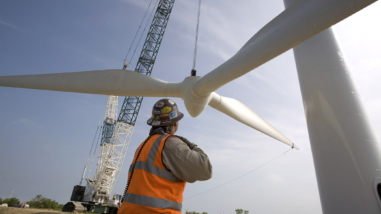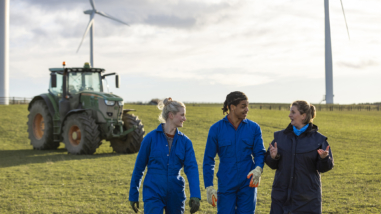New transportation strategy addresses climate change, health and the economy

By 2050, we hope to reduce road CO2 emissions by over 95% in China, Europe, India, and the United States by aggressively advancing zero-emission vehicles for passenger and freight travel. By achieving saturation in these major vehicle markets, we expect the rest of the world will follow quickly. What’s more—if we succeed, we will avoid 550,000 needless deaths from air pollution and create up to 35 million new jobs by 2050.
We are facing a decisive decade in rapidly scaling electric vehicles. Public support, policy action, and technology changes are gaining steam. Electric vehicle models are proliferating as battery prices continue to fall and costs of ownership become increasingly attractive. Leaders on addressing climate change and increasing the prevalence of electric vehicles are showing what is possible across the world. The Hewlett Foundation’s zero-emissions road transportation strategy[1]—developed with input from many funders, NGOs, experts, policymakers, and others—will capitalize on the current momentum.
Yet we face huge risks that the market will change too slowly to meaningfully mitigate climate change without targeted philanthropic support. Barriers to electric vehicles include lack of supply, insufficient charging infrastructure, higher purchase costs, low consumer awareness, and a needed shift in the auto supply chain and related job transitions. Opposition from the fossil fuel industry and inaction from policymakers could also prevent progress.
Our funding over the next five years will support grantees to achieve three outcomes to make progress toward our ambitious goal:
- Ambitious electric vehicle regulatory policy: Strong vehicle regulations at state, national, or cross-national levels are the foundation for rapid transformation of the electric vehicle market.
- Ubiquitous, affordable charging: A move from universal gas stations to ubiquitous electric vehicle charging stations, well-designed charging rollout plans and rates, and low-cost electricity overcomes barriers shared by consumers, fleet owners, freight companies and utilities.
- Increased demand that complements strong regulations: Governments, cities, and businesses demonstrate demand through fleet commitments and individual buyers commit to purchasing electric vehicles.
In addition to empowering grantees who are well-positioned to deliver on these outcomes, we will approach our grantmaking with an intent to:
- Foster a strong ecosystem for a rapid transition: Build broad support and pressure for strong action via more diverse and stronger support with new allies, including environmental justice groups, businesses, utilities, labor, health advocates, and investors.
- Strengthen grantee capacity, including justice, equity, diversity, and inclusion: Enhance grantee capacity including making advances in justice, equity, diversity and inclusion, and long-term support.
Ending the internal combustion engine is an ambitious goal that needs at least 10 times the philanthropic funding that we ourselves can contribute. As a long-term funder of clean transportation solutions, the Hewlett Foundation is privileged to have built strong relationships with grantees, developing a deep knowledge of the field and a nuanced understanding of past successes and failures in this space that we are already putting into practice. We also work in collaboration with others on efforts like the Drive Electric Campaign, where I serve on a steering committee, to help bring in new funders and provide strategic advice.
The time is now to make progress toward transforming our shared roads. With the International Energy Agency finally concluding that no new oil and gas fields can be developed if we are to keep warming under 1.5 Celsius, global leaders increasingly realize that electric vehicles are our best chance to provide the world with all the transportation services we are used to while saving the climate for future generations. The Hewlett Foundation stands ready to support these leaders, work with grantees, and partner with philanthropies and other interested donors to raise the funding needed to win.
[1] Complementing this overall road strategy is Hewlett’s Zero Emission Road Freight Strategy 2020-2025 (published in April 2020)



